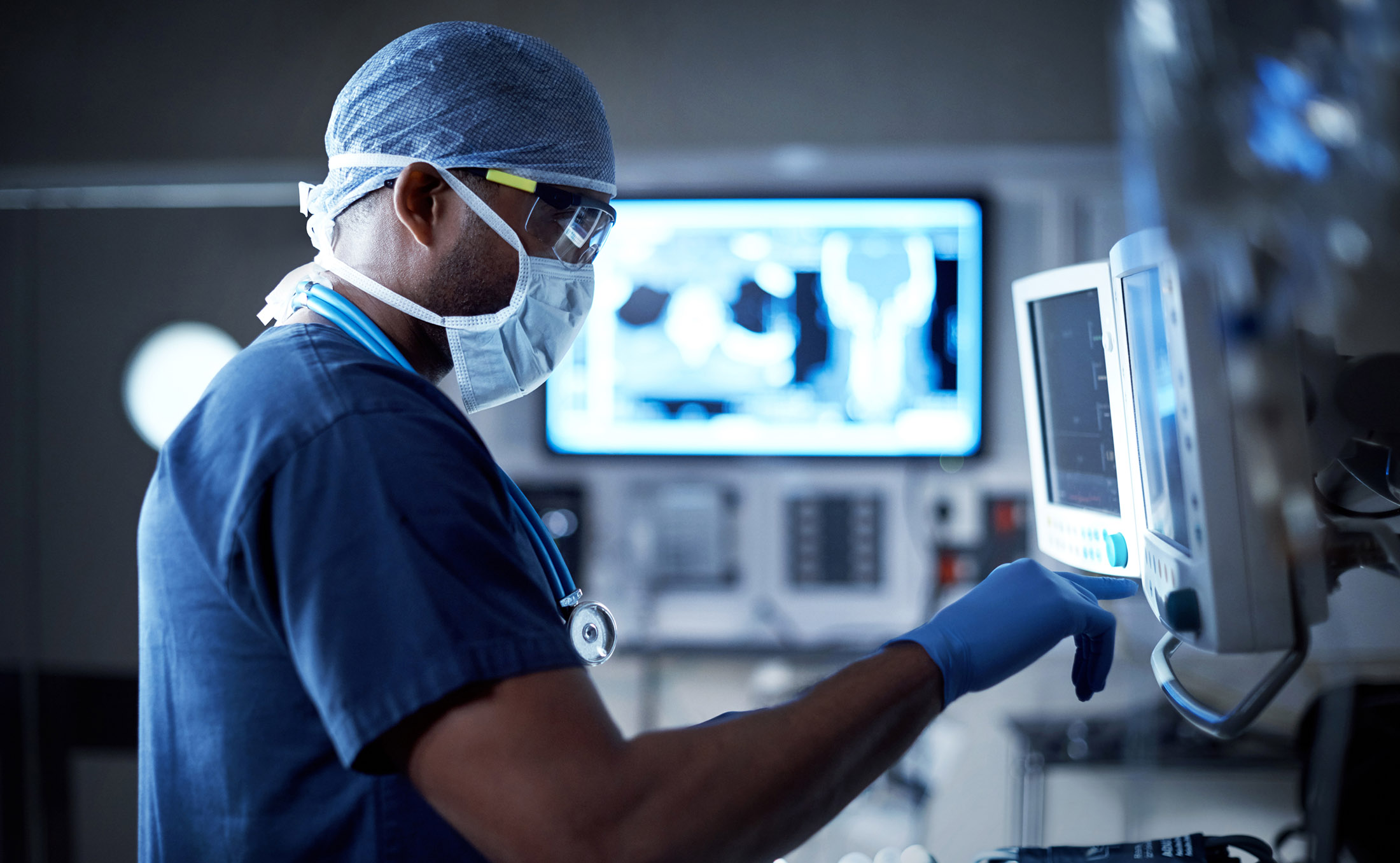Sussex Premier Health, Hastings: Important update for patients with upcoming appointments
Sussex Premier Health, Hastings: Important update for patients with upcoming appointments
Minimally invasive surgery to treat fractures in the spine.

Balloon kyphoplasty is a minimally invasive treatment for vertical compression fractures (VCFs). The spine (or backbone) is made up of bones called vertebrae, which are linked together. A VCF occurs when the front of a vertebra (known as the vertebral body) fractures and collapses, often causing pain and increasing the risk of further fractures. Over time, some people also lose height or their spine can become curved.
It usually takes about an hour to treat each fracture and balloon kyphoplasty can be carried out under local or general anaesthetic. During the procedure, surgeon inserts two small balloons into the affected bone(s) and inflates them to return the vertebra to as close to its normal height as possible. After deflating and withdrawing them, he or she will inject a special cement to stabilise the fracture.
You will have a formal consultation with a healthcare professional. During this time, you will be able to explain your medical history, symptoms and raise any concerns that you might have.
We will also discuss with you whether any further diagnostic tests such as scans or blood tests are needed. Any additional costs will be discussed before further tests are carried out. We will talk to you about what you can reasonably expect in terms of pain relief and restoring any height lost as a result of the vertebral fracture or fractures in your back.
Together we’ll decide whether you can be booked straight in for the procedure.

We understand that having surgery can be a time of anxiety and worry. Our experienced and caring medical staff will be there for you to answer your questions and offer reassurance and support. You may be given a local anaesthetic which means you’ll be awake, but you shouldn’t feel any pain. In some cases, a general anaesthetic is used so that you are asleep during the operation.
Once your back is feeling numb your surgeon will insert two very small balloons into the fractured bone. They’ll inflate the balloons to return the bone to its normal shape and position. The balloons will be deflated and withdrawn. Your surgeon will then use a hollow needle to inject bone cement (a synthetic resin) into the affected part of the spine. This will harden within 20 minutes and help to stabilise the affected bone reducing deformity and pain. The surgery takes around an hour (per fracture treated).
After your procedure, you will be taken to your room or comfortable area where you can rest and recuperate until we feel you’re ready to go home. You may be able to go home on the day but sometimes will need to stay the night – particularly if you’ve had a general anaesthetic. Your surgeon may visit you to discuss the outcome of your operation and to assess how much your back pain has been reduced.
You should follow your surgeon’s advice about driving returning to work and resuming your usual physical activities – most people are able to gradually resume normal activities once they have been discharged from hospital. You should not drive until you feel you could do an emergency stop without discomfort.
You should ask a friend or relative to pick you up from the hospital and if you live alone ask them to stay the next day to help with light chores. You shouldn’t engage in strenuous activity (even some of the heavier housework chores or lifting heavy shopping bags) for 6-8 weeks so you might want to talk to them about how they can help you during that time – particularly if you live alone.
Even after you’ve left hospital we’re still looking after you every step of the way. When you leave hospital, we’ll provide you with relevant information and painkillers. We will provide you with a supply of all the medicines your consultant feels you need to take home with you, after you’ve left hospital up to 14 days. This may be at an additional cost to some patients. Typically, your consultant will want to see you six weeks after your treatment to see how you’re doing.
As with all medical treatments complications can occur but most people are unaffected. Potential complications of balloon kyphoplasty are excessive bleeding, infection, leaks of the bone cement used during the procedure or new fractures.
You’ll be given a contact number for the hospital. If you have any questions or concerns about your recovery, we’re ready to help.

Many spinal vertical compression fractures (VCFs) are caused by osteoporosis, a disease which causes the bones to become more brittle and liable to break more easily. Fractures can also occur as a result of some types of cancer. Many people recover from VCFs through a combination of rest, pain-killing medication, and spinal support but this is not always the case.
Balloon kyphoplasty uses an orthopaedic balloon to return the vertebra to as close to its normal height as possible and aims to stabilise the fracture, restore alignment within the spine, and reduce pain. Balloon kyphoplasty usually involves a one-night stay in hospital.
It is sometimes performed using general anaesthetic which means you will be asleep throughout the procedure and will feel no pain. It is also sometimes performed using local anaesthetic which means you will be awake, but the area will be completely numb.
Our patients are at the heart of what we do, and we want you to be in control of your care. To us that means you can choose the consultant you want to see and when you want. They’ll be with you every step of the way.
All of our consultants are of the highest calibre and benefit from working in our modern well-equipped hospitals. Our consultants have high standards to meet, often holding specialist NHS posts and delivering expertise in complex sub-specialty surgeries. Many of our consultants have international reputations for their research in their specialised field.
We’ve tried to make your experience with us as easy and relaxed as possible. For more information on visiting hours our food what to pack if you’re staying with us, parking, and all those other important practicalities, please visit our patient information pages.
Our dedicated team will also give you tailored advice to follow in the run up to your visit.
Speak to a member of our team